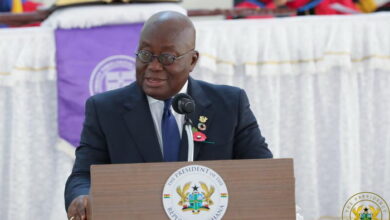BoG Interventions Help Cedi Recover, But Market Concerns Persist
BoG Interventions Help Cedi Recover, But Market Concerns Persist

- BoG interventions in the foreign exchange (FX) market have contributed to a modest recovery of the cedi
- These measures are designed to boost liquidity
- Market observers are cautiously optimistic about the cedi’s recent recovery
The Bank of Ghana’s (BoG) interventions in the foreign exchange (FX) market have contributed to a modest recovery of the cedi, following weeks of steady depreciation.
The local currency appreciated by 0.8% week-on-week (w/w) against the US dollar, 2.12% w/w against the British pound, and 1.96% w/w against the euro, ending the week at a mid-rate of GH¢16.79 per dollar.
This positive movement comes after significant liquidity injections by the central bank aimed at addressing the demand pressures within the foreign exchange market.
According to Databank, the BoG sold US$209.10 million during its daily auctions, in addition to auctioning US$20 million specifically for Bulk Oil Distribution Companies.
Furthermore, the BoG implemented new measures to provide daily FX support to the interbank market. The central bank announced that it would continue to offer FX support, with the stipulation that bidding banks maintain a net position of either a net short or a maximum net long position of US$500,000 at the close of each session.
These measures are designed to boost liquidity, meet market demand, and curb speculative trading, thereby fostering a more stable environment for the cedi. With these interventions, the BoG aims to maintain the cedi’s stability in the short term.
Lingering Concerns Over FX Reserves
Despite the initial success of these interventions, concerns persist about the sustainability of Ghana’s FX reserves. As of July 2024, the country’s reserves stood at US$7.5 billion, which represents only 3.4 months of import cover. While these measures have provided temporary relief, analysts caution that continued heavy intervention by the BoG could deplete the reserves, leaving the central bank vulnerable to future economic shocks.
“Risk-off sentiments remain, as concerns grow over the sustainability of the FX reserves in the near term, especially given the BoG’s ongoing FX support,” noted Databank in its latest report.
These concerns are further amplified by the upcoming general elections in December, a period traditionally marked by increased fiscal pressure and heightened currency volatility. Market analysts warn that the BoG will need significantly larger reserves to stabilize the cedi post-election, especially when external debt servicing resumes.
Political and Economic Pressures
There is also speculation about the timing of the BoG’s actions, with some market participants suggesting that the interventions may be aimed at bolstering the cedi’s performance ahead of the elections. Others believe that the current BoG administration is seeking to improve the cedi’s value as part of its end-of-term strategy.
While the BoG’s efforts have temporarily alleviated market pressures, the longer-term challenges remain. The success of the current strategy will depend on whether the central bank can continue to manage the FX market without exhausting its reserves, particularly as the economy faces further pressures in the coming months.
Market observers are cautiously optimistic about the cedi’s recent recovery but remain wary of over-reliance on the country’s dwindling foreign exchange reserves.
As the situation unfolds, stakeholders will be closely monitoring the FX market to assess whether the stability achieved can be sustained or if additional measures will be needed to secure Ghana’s economic position.





